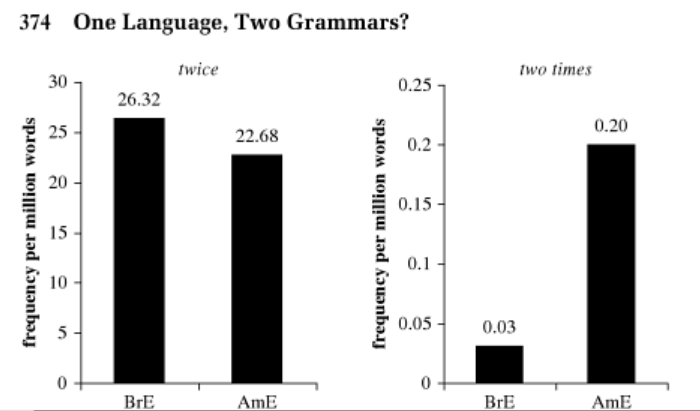I had a student moaning because I insisted he say twice and not "two times". And he asked "But why?" to which I replied, "Because that's how you say it!"
However on reflection, his question was a valid one.
In Latin there doesn't appear to be any discernible pattern
- once is semel
- twice is bis
- thrice is ter
- four times is quater
- five times is quinquies
but in German the suffix -mal is used,
- once is einmal
- twice is zweimal
- thrice is dreimal
- four times is viermal
In French the term fois is repeated
- once is une fois
- twice is deux fois
- thrice is trois fois
- four times is quatre fois
In Italian the noun volta (s) volte (p) is used
- once is una volta
- twice is due volte
- thrice is tre volte
- four times is quattro volte
In Spanish veces is repeated
- once is una vez
- twice is dos veces
- thrice is tres veces
- four times is cuatro veces
And all the following languages follow the same pattern. In Danish it's gange; in Norwegian ganger; in Polish raz and razy; Portuguese has vez and vezes; and Welsh uses waith and gwaith.
Questions
- So why does the English language have three different words for "one time", "two times" and "three times"?
- Beyond a shadow of a doubt the English thrice is doomed to exile if not extinction; will twice suffer the same fate? For instance, many Italian speakers learning English do say "two times"—for them it makes more sense.
Clarification:
I am not suggesting that twice is old fashioned, unnecessary or— heaven forbid—nonsensical. But considering the history of thrice, it is possible that sometime in the future, native speakers will look back fondly on twice as being quaint and quite rare. My second question is in fact asking if there are signs of this happening now.
Related Questions:
Why has the word “thrice” fallen out of common usage?
Twice vs Two Times
Is there a word for four times as much, analogous to once, twice, and thrice?


1is also an indefinite article, for instance. And singular and plural is standard. For2, couples, twins, etc. are also standard; so we have the dual number in PIE, for instance, plus words like both, twice, pair, etc. Also normal to have special dual terms. Three is where the breaking point comes; English has rare thrice, but that's a pedants word any more. It gets a laugh in A Funny Thing Happened On The Way To The Forum -- "He raped Thrace thrice!" But that's it for3.